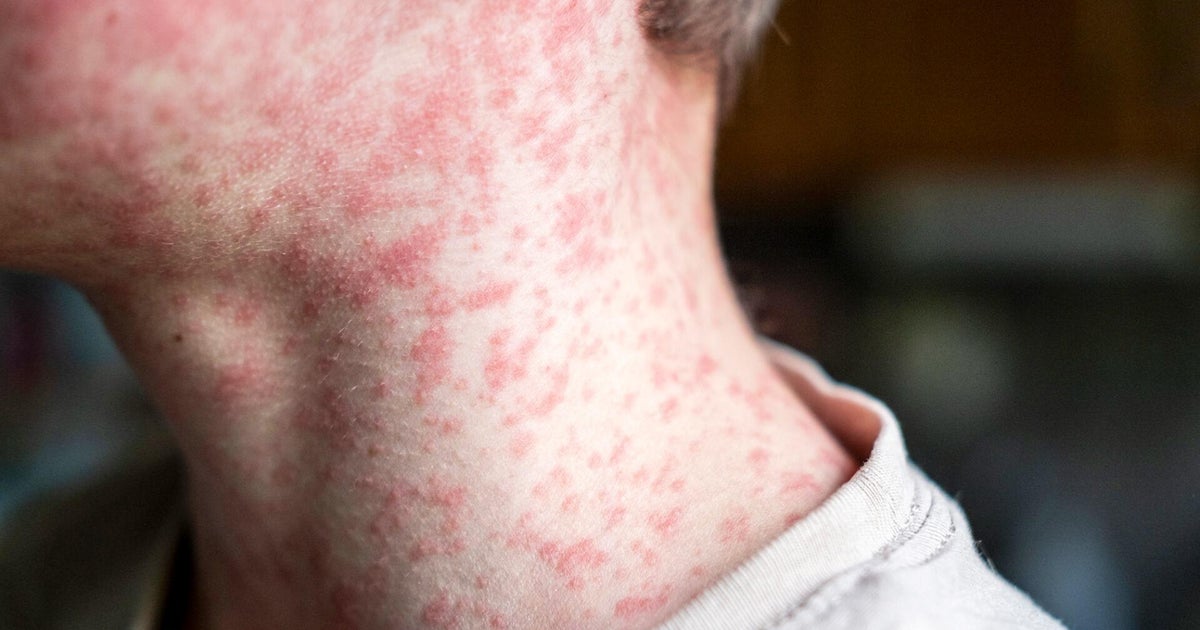Can I get a COVID-19 vaccine booster shot? Latest guidelines for recipients of Pfizer, Moderna and Johnson & Johnson
All adults are now recommended to receive a COVID-19 vaccine booster shot, after the Centers for Disease Control and Prevention stepped up its guidance for recipients of Pfizer, Moderna and Johnson & Johnson's vaccines.
Pfizer's booster shots are also recommended for ages 12 and up.
The recommendations come as public health officials are preparing for a potential surge in breakthrough infections that could be caused by the Omicron variant, on top of a wave of cases fueled by the Delta variant that is already straining some hospitals.
The FDA is also allowing adults to mix-and-match their booster shots, which means those 18 and older can choose to receive an additional dose from any of the three brands that are available.
Though children as young as 5 are eligible to be vaccinated against COVID-19, they are not authorized to receive booster shots. However, the FDA has OK'd third doses for children as young as 5 who have been diagnosed with conditions that leave them immunocompromised.
Here's what we know so far:
Pfizer and Moderna recipients
As cases of the Omicron variant began to spread, CDC Director Dr. Rochelle Walensky moved to strengthen her agency's recommendations: All adults who received shots from Pfizer and Moderna are urged to get a booster. And Pfizer's boosters are also recommended for adolescents and teens ages 12 and up.
People who were vaccinated with Pfizer or Moderna can get a booster five months after their second dose, according to updated guidelines announced by the FDA and CDC in early January 2022.
Pfizer and BioNTech say their early data suggests Omicron's accumulation of mutations may be able to evade the protection against infection offered by their first two doses, but that boosters can help restore immunity.
"Based on the FDA's assessment of currently available data, a booster dose of the currently authorized vaccines may help provide better protection against both the delta and omicron variants," Dr. Peter Marks, the FDA's top vaccines official, said in a statement.
Dr. Walensky's decision to bolster the CDC's guidance came after her outside vaccine advisers had initially stopped short of a full-throated recommendation for all adults to receive a third dose in November, some citing unanswered questions over the benefits and risks Americans should weigh before getting another shot.
Among the concerns: health authorities have wrestled with the rare risk of myocarditis, a heart inflammation side effect that has been seen in mostly younger men after the mRNA-based Moderna and Pfizer vaccines.
Data presented to the CDC's advisers from other countries suggest the rate of side effects, including myocarditis, is lower after the third dose. Studies continue to show that most people who experience myocarditis linked with the shots "experience mild symptoms and rapid clinical recovery, though many had evidence of continued heart inflammation." Avoiding vaccination does not eliminate the risk of this condition: COVID-19 infections can also lead to myocarditis.
Federal health officials and drugmakers say they are continuing to investigate the risk, and recently updated their guidance to acknowledge data from other countries suggesting that the risk might be higher after Moderna's vaccine than Pfizer's.
"We still have things to learn and we will be doing surveillance and have required the companies to also do surveillance to look at this side effect," Woodcock told a webinar hosted by Stanford University.
Johnson & Johnson recipients
The CDC recommends a booster shot for all adults who were vaccinated with Johnson & Johnson's Janssen COVID-19 vaccine at least two months ago.
That comes after the FDA concluded that even the highest estimates of the single-shot vaccine's protection were "consistently less" than the mRNA-based vaccines from Pfizer or Moderna.
Data presented to the FDA's outside vaccine advisers by Johnson & Johnson says vaccine effectiveness against symptomatic COVID-19 climbed to 94% in the U.S. after a booster shot.
A group of the CDC's vaccine advisers also concluded that the risks of rare but serious side effects following a second dose of the vaccine were "unlikely to be greater" than after the first dose.
People vaccinated abroad with another brand
People who got vaccinated abroad with shots greenlighted by the World Health Organization, but not authorized in the U.S. by the Food and Drug Administration — such as the AstraZeneca, Sinovac or Sinopharm vaccines — can now also get a booster dose of Pfizer's vaccine under recently published CDC guidance.
These people only need to wait four weeks before they are able to get an extra dose.
To allow third Pfizer doses in these cases, the CDC relied on rarely used "emergency use instructions" that have previously been used to greenlight drugs in the case of an anthrax outbreak.
A CDC spokesperson said the agency was only able to allow use of Pfizer's vaccine for these additional doses because the shots by Moderna and Johnson & Johnson have yet to receive the FDA's full approval.
Mix-and-match boosters
The FDA's decision to allow for mixing-and-matching booster shots was based in part on early data from trials led by the National Institutes of Health which suggest all combinations of so-called "heterologous" boosting are safe and effective at increasing protection.
Federal health officials also pointed to situations that made requirements to match booster shot brands tricky, like when people do not remember which shots they were first vaccinated with, had a bad reaction to their initial vaccinations, or do not have access to the same brand at their nearby pharmacies.
For now, the FDA's scientists concluded there is not enough data from the NIH's trial to pick a "preferred strategy" for boosting. The study's scientists had cautioned that their trial was not designed to "directly compare" the immune response triggered by different booster combinations.
Data presented to the CDC's advisers suggest that mixing-and-matching booster shots have turned up no new safety concerns. Reactions from Moderna's boosters were more commonly reported than after Pfizer's boosters.
Johnson & Johnson has touted early findings, which have not yet been peer-reviewed, suggesting that Pfizer recipients who switched to Johnson & Johnson for their booster may have received a better immune response.
"We will not articulate a preference. My understanding is that most people will have done largely well with the initial vaccine that they got and may express a preference, very much, for the original vaccine series they got, having done very well," CDC Director Rochelle Walensky told reporters.
The majority of Pfizer and Moderna recipients have so far stuck with the same brand for their booster shot so far, according to the CDC. Only a quarter of Americans first vaccinated with Johnson & Johnson have opted to stay with the brand for their second shot.
"There may be some people who might prefer another vaccine over the one that they received, and the current CDC recommendations now make that possible."
Fourth doses and special cases
Beyond the broad recommendations governing booster shots for most Americans, the CDC has also updated its extensive guidance over the past months detailing specific situations that might require more doses of vaccine.
For example, a few million immunocompromised Americans who were allowed to receive a third "additional" dose of the Pfizer or Moderna vaccines will be able to receive a fourth "booster" shot, six months after they received their third shot.
Others who received certain kinds of cancer treatments may be entirely revaccinated after completing stem or T-cell therapies.





